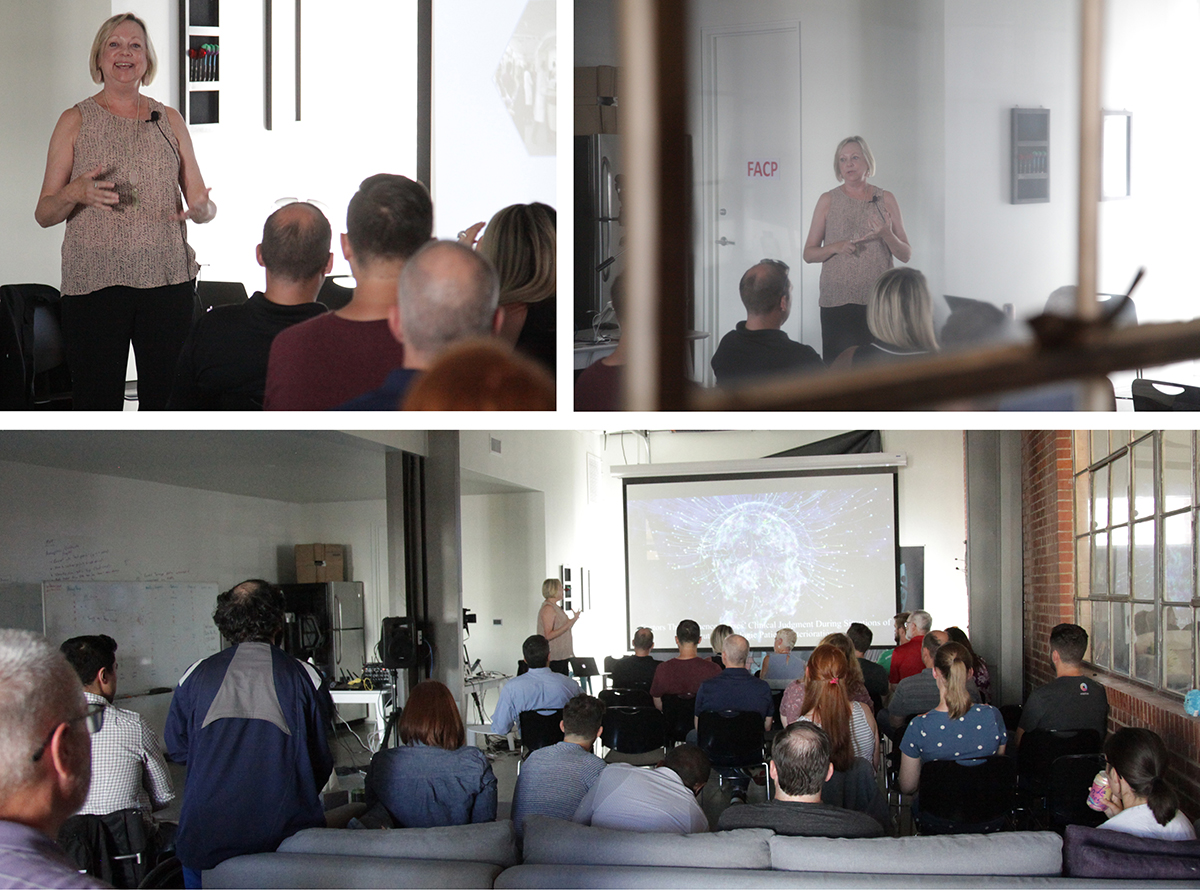July 18, 2019 - Some things that can't be taught in a classroom have a lot of influence over whether a nurse will be able to recognize when a patient is 'going downhill.' Dr. Susan Dresser, PhD, the Director of the Adult/Gero CNS Program at the OU HSC College of Nursing, presented her study at the July Data+Creativity meetup.
Dr. Dresser recently completed the study with findings that indicate that nurses’ clinical judgments (noticing, interpreting, responding, and reflecting) are much more iterative than is depicted by the current standard model, suggesting the need for refinement in the model. Her study also identified opportunities to address gaps in practice that can lead to a delay in noticing when patient deterioration first occurs.
The fascinating topic led to passionate discussion that inspired new ideas. Mark Wissler, Exaptive’s Director of Data Solutions Engineering (and Dr. Dresser’s son-in-law! Small world!), realized, “I've been obsessing over qualitative research for the past month or two since my mother-in-law's dissertation was purely qualitative. The way she described doing the research and learning qualitative methods was instantly appealing because it's similar to the problem I have with natural language processing (NLP) methods.

“Then as I read more on user experience (UX) research, I realized the interviews and focus groups are clearly qualitative research: retrieving 'dirty' data in the form of a conversation in which people give you information in a narrative way, simultaneously constructing a narrative and codifying their thoughts and emotions into words.
“At the meetup, a university hospital leader pointed out that missing early warning signs that shouldn't be missed may be (among other things) symptomatic of technology's insertion into the nursing workflow. More face time with a computer than with the patient, checking boxes and inputting biometrics. The critical component missing, she asserted, is that nurses no longer construct narratives in their notes or verbally.
“This was an a-ha moment for me, as reading on AI/semantic memory had emblazoned in my mind that we reason and think using semantic memory. That is: literally connecting the dots between 'patient' and 'low blood pressure' and 'high blood sugar' and 'declining O2 saturation' is the pattern that matches with 'impending adverse event,' and checking boxes across disparate screens in an EMR software doesn't trigger the same pattern recognition, especially in exhausted and overworked nurses.
“The relevance to Exaptive is that … we have an opportunity to keep in mind how human brains work and allow people to tell and hear narratives.” Expect a great blog post that expands on this idea later this year!
Another great spark inspired by the meetup was Devon Mobley’s idea for possibly forming a professional group of technologists and doctors and nurses that could close the feedback loop on digital products in healthcare. Devon is the Director of Product and Technology at SendaRide, and a long-time Data+Creativity member. He’ll even be giving a 5-minute presentation on it at our August meetup in our first-ever round of Lightning Talks!
We always hear such great ideas from our crowd, we’re excited to pass the mic around next month to hear what special projects our members are passionate about! You should come and bring a friend.